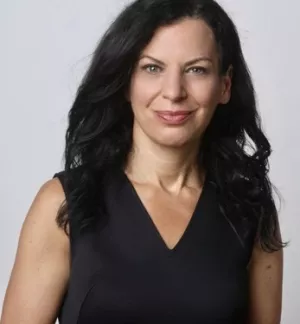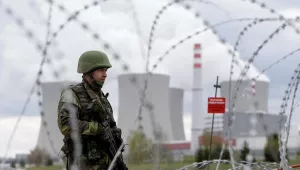WRITTEN TESTIMONY OF JULIETTE N. KAYYEM
JOHN F. KENNEDY SCHOOL OF GOVERNMENT
FORMER MEMBER, NATIONAL COMMISSION ON TERRORISM
HOUSE PERMANENT SELECT COMMITTEE ON INTELLIGENCE
"Building Capabilities: The Intelligence Community's National Security Requirement for Diversity of Language Skills and Ethnic and Cultural Understanding."
November 5, 2003
Rayburn Building
The subject you are addressing today -Building Capabilities - is a very personal issue for me. I am an Arab-American who works in the national security community, a perspective that is important to this hearing. So, I will begin by relating my personal experience in the national security community as it informs what I believe to be essential aspects of America's intelligence requirements with respect to Intelligence Community personnel.
BACKGROUND
Presently, I am a Senior Fellow at the John F. Kennedy School of Government where my work is focused on terrorism, domestic preparedness and law enforcement. For the last two years, I directed the Executive Session on Domestic Preparedness at the Kennedy School, a research program that addressed the domestic preparedness needs of local, state and federal policymakers with respect to homeland security. My work appears regularly in academic and popular publications and I consult with government and private institutions on America's counterterrorism strategies. I serve as a national security analyst for NBC News. I am also the co-editor of The First To Arrive: State and Local Responses to Terrorism (MIT Press, 2003).
My entrance into the world of national security and terrorism, however, was not a straight line. In fact, I began my legal career as a civil rights attorney at the Department of Justice. There, I litigated cases as a trial attorney. Eventually, I became a Special Assistant and then Counsel to the Assistant Attorney General for Civil Rights.
I am an Arab-American and, to be specific, a Lebanese-Christian. My mother was born in Lebanon; my father comes from a small town in the Bekaa Valley. I do not speak Arabic. But, I was raised with a keen respect for my background and an understanding of the Arab world that likely only comes from being raised in that community.
In 1998, then-Attorney General Janet Reno began a series of conversations between the Arab-American community and federal law enforcement agencies. At that time, like today, there was concern in the Arab-American community about the treatment of immigrants and citizens by the INS, FBI and individual U.S. Attorneys Offices. In particular, the Attorney General was concerned about a number of cases, known as the "secret evidence" cases, where individuals were being detained by immigration courts based on evidence that they could not see or contradict.
There were, to be blunt, basically no other Arab-Americans at the Department of Justice who could sit in on those meetings and serve as a bridge for communication. While I had for some time been raising concerns at the Department about these cases and the weight of the secret evidence, it is just as likely that my presence at those meetings had as much to do with my background. I eventually would serve as an advisor to Attorney General Reno on national security issues related to the conduct of federal law enforcement agencies.
Those meetings marked the beginning of an important dialogue between Arab-American groups and federal law enforcement regarding the relationship between their respective communities. What was clear from the outset was the extent to which federal law enforcement agencies had almost no ties to the Arab community of interest. The FBI and INS are predominantly white and predominantly male.
At about the same time, Congress enacted legislation creating the National Commission on Terrorism that would provide an independent review of America's counterterrorism efforts. It was formed after the African embassy bombings and was chaired by L. Paul Bremer (now the civil administrator in Iraq) and included Congresswoman Jane Harman, General Wayne Downing and formed CIA director Jim Woolsey. Suzanne Spaulding served as its Executive Director.
I, too, was appointed to the Commission as there was a growing concern that a commission on international terrorism should be informed by at least one Arab-American. To be honest, while I am proud of the work of the Commission, I do not doubt that my appointment - at the age of 29 - had much to do with the fact that there were so few Arab-Americans who had any experience in national security.
The Commission issued its report in June 2000. It was a detailed and exacting critique of our preparation for the growing threat of terrorism. It received some notice, but did not, unfortunately, have tremendous impact until after the terrorist attacks of September 11, 2001. Its recommendations now serve as the foundation for much of the governmental reforms now taking place, and many of its members serve in senior positions in government related to terrorism.
The recommendations include issues that will seem familiar to you today: the need to buttress intelligence capabilities and, more specifically, to buttress quick and reliable translation capabilities. The Commission also urged that America's counterterrorism efforts be fair and equitable and that America serve as an example of hope and justice both for ourselves and for nations struggling towards democracy. My presence at that table, I hope, led to important discussions about ethnicity, counterterrorism efforts affecting particular communities, and the need for greater dialogue and understanding.
THE DEMOGRAPHICS OF OUR NATIONAL SECURITY COMMUNITY
Because of my background and work, I personally believe that the question of the content of our intelligence cannot be disassociated from the question of recruitment and diversity in the intelligence agency's workforce. I believe that they are fundamentally related in three important ways that suggest that America needs to begin a strategic recruitment effort to draw Arabs and Muslims into our intelligence agencies, rather than chasing them away.
First, strategically, our law enforcement and intelligence communities are woefully inadequate in Arabic translation skills, and are often forced to contract out these vital duties. Today, much of the human intelligence that our agents go to such extraordinary lengths to gather is left unused, simply because it is left untranslated. A larger pool of people to choose from for translation services would mean that the intelligence we are gathering would actually be utilized.
It would also mean that we would never have to employ people who may pose a security threat. Clearly, I say this in the context of the present controversy on Guantanamo Bay. Lately, there has been increased discussion of the risks associated with hiring Arab- and Muslim-Americans or immigrants in America's counterterrorism efforts. Specifically, the recent allegations of potential sabotage by U.S. personnel on Guantanamo Bay - as many as 10 people who worked on Guantanamo Bay are under scrutiny for espionage - have raised concerns about the sentiments and allegiances of those we hire. It appears that all the men under scrutiny are either Islamic or of Arab descent. I do not know the cases specifically, nor do I personally agree with the long-term detentions of persons on Guantanamo Bay. But, we do seem particularly desperate for translators when public court documents disclose that Syrian-born airman Ahmad al-Halabi was under some sort of surveillance before he was ever on Guantanamo Bay. Obviously, he should never have been given access to the island, let alone prisoners, if he was already under suspicion. Yet we are forced to cut important corners because we simply do not have a big enough pool of people.
Second, as was recognized in the 1960s after the race riots in America in relation to urban police departments, diversifying our national security communities will go far in creating effective bridges of communication between Arabs and Muslims and the federal government. That relationship today is not a very good one; some of the government's efforts are viewed as draconian and unforgiving. We now recognize that a community policing strategy - in which local police broaden the nature and number of police functions so as to relate better to their neighborhoods and the citizenry - coupled with a very strategic minority recruitment program has changed the nature of the relationship of the cops to the citizenry in many urban jurisdictions. We need to change the nature of the relationship between the citizenry and our national security community as well. In the end, the effectiveness of the policies we adopt will be influenced by those who work within government.
Third, our strategic and cultural understanding of the Arab and Muslim world could be enhanced by better integration of all of our national security related agencies. It is often said that we need to bridge relationships with the Arab and Muslim communities so as to greater understand the potential threat of terrorism here in America. I find this claim to be without much merit. Indeed, the nineteen 9/11 hijackers were not at all integrated into local Arab or Muslim communities. Instead, a more integrated national security workforce would likely provide two important benefits. Firstly, it would make our federal intelligence and law enforcement communities a more desirable place to work for Arabs and Muslims. Presently, there is a palpable tension between Arab and Muslim communities and the U.S. government because of detentions, interrogations, and strict immigrations policies. For young Arab and Muslim Americans, the prospect of serving their country in counterterrorism efforts is likely attractive, but also complicated. It is not entirely clear that they are wanted, as their relationship with our national security agencies tends to be one of suspect and interrogator. Secondly, the U.S. government is often forced to contract out or rely on people with their own potential agendas in order to better understand the Arab and Muslim worlds. For example, a recent non-partisan report suggested that the information the U.S. government was receiving from Iraqi dissidents about what post-war Iraq would be like was outdated and sometimes ill-informed. This is not necessarily to say that our pre-war intelligence would have been more accurate if our agencies were better diversified; it is to say, however, that we would not have been so dependent on this one source of intelligence.
THE PROBLEM OF SECURITY CLEARANCES
From the government's perspective, there are significant concerns about the security background of recent immigrants or those with ties to countries in the Arab region. Once again, my case is illustrative. My mother was born in Lebanon, as were 5 of her 9 siblings. Two of her sisters were born in Cuba. My security clearance was complicated and long. There were few records kept, for example, of their immigration to America.
This fact, however, only suggests that more efforts may need to be made to grant those clearances early, not that the effort shouldn't be expended. Presently, there is a tremendous backlog of clearance needs, a backlog that has been addressed by Congress and will continue to be addressed by our security agencies. But to argue, as some have, that it is simply too hard to get security clearances for Arab and Muslims nationals or citizens is too gross a generalization. There will be hard cases, of course, but there will be easy ones as well - people who seek to serve their country in a unique and important way.
A STRATEGIC RECRUITMENT EFFORT
I am in the beginning stages of a research project at the Kennedy School related to the question of diversity and national security. It seeks to determine the experience of Arab and Muslim Americans in the intelligence and law enforcement communities. As yet, I have not been able to determine the demographics or representation of Arabs and Muslims in our national security agencies. The number is likely to be low. For the project, I am also exploring anecdotal evidence that Arabs and Muslims hired by the U.S government are finding their unique skills underutilized and sometimes facing hostile work environments.
Though I have only just begun this research, the basic outlines of a recruitment strategy for Arab and Muslim Americans are clear. Initially, a recruitment effort would need to include the following aspects:
- Partnering with Arab and Muslim American leaders to attract qualified applicants;
- Providing career development opportunities related to the individual's unique skills;
- Ensuring a non-hostile workforce;
- Providing opportunities for greater dialogue between law enforcement agencies and the communities of interest to promote greater trust and less antagonism;
- Recognizing that some counterterrorism efforts will be viewed as antagonistic to certain communities, and taking steps to either end or reduce the potential harm.
Recently, the Council on Foreign Relations issued a report entitled "Finding America's Voice: A Strategy for Reinvigorating U.S. Public Diplomacy." The bipartisan report argues that that the United States needs to spend more time and resources on public diplomacy in the Arab and Muslim worlds so that we can change the overwhelming negative perception about America. It is in America's security interest to do so. That assessment seems accurate, but surely part of that effort must be to engage those very communities here in America. A government recruitment plan that would make our national security agencies better reflect areas of the world that are not only a threat, but also an opportunity, should be part of that mission.
There is tremendous discussion today about putting an Arab face on our post-war reconstruction efforts in Iraq. The argument goes that such a change would provide legitimacy to the occupation in Iraq. I do not know whether that is true or not, but I can understand the sentiment as it relates to our efforts here at home. A more diversified national security community makes sense not merely because of each employee's own perspective and the sensitivities that they may bring to the table. It may also bolster arguments that those enforcement policies we are pursuing are not aimed at any particular religious or ethnic group, but rather at identifiable threats and individuals.
Last year, the Supreme Court addressed the difficult issue of diversity in the law school admissions process at Michigan Law School. I do not intend to discuss the merits of one particular recruitment plan over another. What is important is that we have, as a nation, seemed to reach a core consensus on the benefits of diversity in all aspects of our life. The majority opinion by Justice O'Connor notes favorably a brief filed by high-ranking retired officers and civilian leaders of the United States military wherein they wrote "[b]ased on [their] decades of experience (a) highly qualified, racially diverse officer corps . . . is essential to the military's ability to fulfill its principle mission to provide national security." Grutter v. Bollinger, et. al. (2002) at 18. Given the nature of the threat of international terrorism from particular areas of the world, it is important to remember, in the words of Justice O'Connor, that "participation by members of all racial and ethnic groups in the civic life of our Nation is essential if the dream of one Nation, indivisible, is to be realized." Id. at 19-20. Our national security, in the end, will be better served by a focused effort to attract a more diverse intelligence workforce. It is in our very strategic interest to do so.
Kayyem, Juliette. “Building Capabilities: The Intelligence Community's National Security Requirement for Diversity of Language Skills and Ethnic and Cultural Understanding.”




